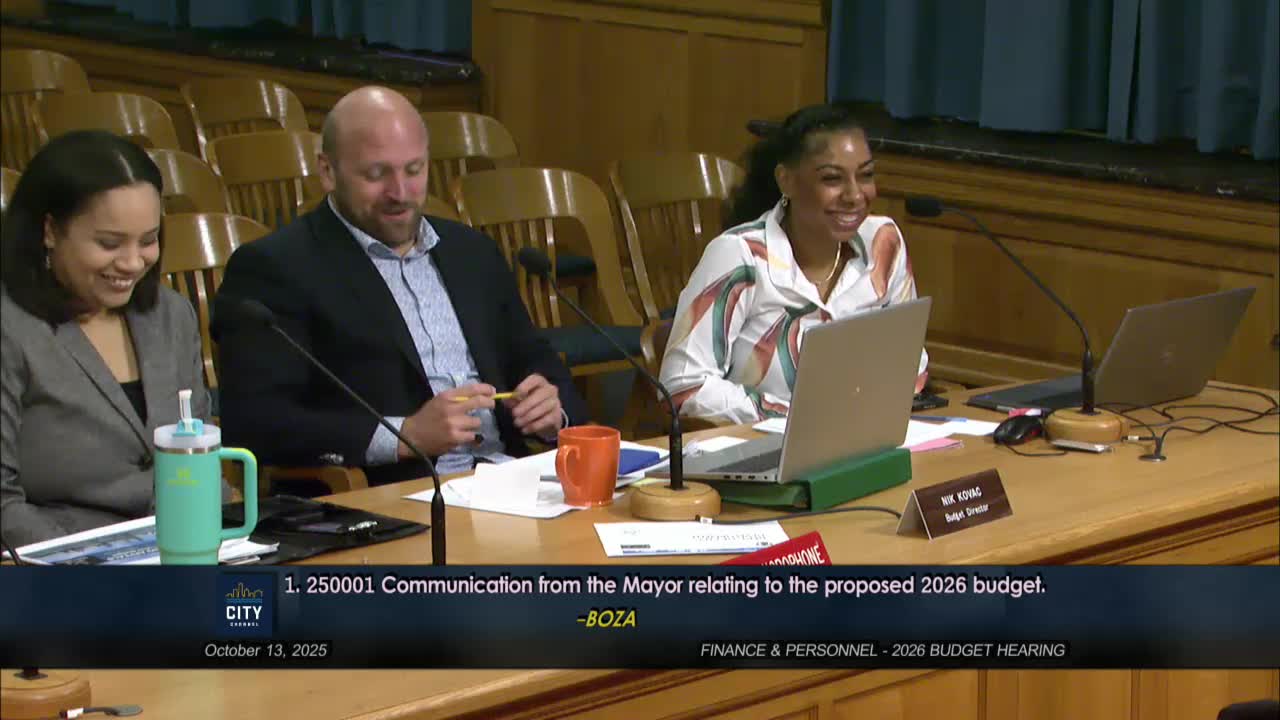Board of Zoning Appeals seeks staffing stability and expands notices after council ordinance; committee hears staffing, translation and Legistar plans
Get AI-powered insights, summaries, and transcripts
Subscribe
Summary
The Board of Zoning Appeals reported a 10% proposed budget increase in 2026, driven largely by added mailing notice costs after December 2024 legislation that broadened notification scope. Officials told the committee they will move to Legistar and translate notices into Spanish, Hmong and other commonly used languages.
The City of Milwaukee’s Board of Zoning Appeals (BOZA) updated the Finance & Personnel Committee on its proposed 2026 budget and operational changes on Oct. 13, 2025, citing higher estimated mailing costs after an ordinance change that broadened the radius and recipients for hearing notices.
Budget and the expanded notice scope
Budget analyst Shaquita Winters said the BOZA’s 2026 proposed budget is $686,733, about a 10% increase from the adopted 2025 budget. The primary driver is a jump in operating costs, largely postage and mailings, from $47,500 to $113,300 after December 2024 legislation that expanded which properties and residents must receive hearing notices.
The BOZA administrative manager, India Agar, described personnel and operations: BOZA’s office supports five regular board members and two alternates, three administrative staff and the standing boards and commissions it staffs. The office said it had filled prior vacancies and is focusing on getting an electronic workflow (Legistar) ready in early 2026.
Translation, eNotify and community outreach
BOZA said it is expanding language access. Staff reported they already translate forms and program summaries into Spanish and are working toward translating hearing notices into Spanish, Hmong and other commonly spoken city languages. The office also promoted eNotify — a subscription tool residents can use to receive location‑based automatic email notices (by address, radius or aldermanic district) — and said staff will circulate information and flyers describing how to enroll.
Process uniformity and fairness
BOZA staff emphasized their application and hearing process is standardized: most appeals begin with a permit denial or referral by the development center and are processed in order received. Appeals require mailed notice to owners and residents within the ordinance’s radius and stages of review are consistent citywide. Fees vary by parcel size and request type.
Committee questions and next steps
Committee members discussed the new mailing scope, whether notices can be simplified and include user‑friendly QR codes linking to case documents, and whether email or eNotify lists could be used to reduce postage demand. BOZA said it will pursue clearer, shorter notice language and work toward Legistar integration in early 2026. Members also asked about internship opportunities within BOZA; the office said it had previously hosted college interns and is exploring a short‑term summer internship or fellowship in 2026.
Public records and transparency
BOZA reiterated that case files, applicant materials and hearing ebooks are shared with alders and the public online via the land management system and via email; the office said it will send updated demographic and staffing slides following the meeting.
Evidence and next steps
BOZA expects to go live on Legistar in early 2026, and staff committed to provide the committee with a follow‑up package on notice language changes, translated materials and a five‑year trend of appeals and decisions in response to members’ requests.
